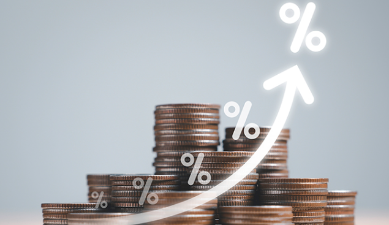The interest rate is the ratio of interest paid over a specific period of time to the amount of borrowed funds. For savers, interest is a reward for providing funds, while for investors, it is the cost of using borrowed funds. Its source of material value is the value created by social surplus labor. Therefore, the level of interest rates inevitably affects the returns between savers and investors.
The impact of bank deposit interest rate adjustments on deposit amounts and interest is primarily reflected in the following aspects:

- Impact on Deposit Amounts
- Attracting or Losing Deposits:
When banks raise deposit interest rates, they attract more funds to the bank as depositors seek higher interest income.
Conversely, when banks lower deposit interest rates, some depositors may shift their funds to other, higher-yielding investments, such as funds, stocks, or bonds, resulting in a decrease in bank deposit amounts.
- Influence on Depositors' Savings Decisions:
Higher interest rates may encourage depositors to increase their savings to earn higher interest returns.
Lower interest rates may cause depositors to reduce their savings, seeking alternative investments or increasing their consumption.
- Impact on Interest Rates
- Directly Increase or Decrease Interest Income:
When deposit interest rates rise, depositors' interest income on their deposits increases accordingly. For example, if a deposit of 100,000 yuan originally had an annual interest rate of 2%, the annual interest would increase from 2,000 yuan to 3,000 yuan after the interest rate was raised to 3%.
When deposit interest rates fall, depositors' interest income will decrease accordingly.
- Impact on Interest Returns on Long-Term Savings:
For long-term savings deposits, interest rate adjustments have a particularly significant impact on interest returns. If interest rates continue to rise during the savings period, depositors will receive higher interest returns; conversely, if interest rates continue to fall, the overall returns over the entire savings cycle may be lower than expected.
- Comprehensive Impact
- Impact on Depositors' Expectations:
Frequent or significant interest rate adjustments may lead depositors to differ in their perceptions of future economic conditions and financial markets, thereby affecting their savings and investment behavior.
- Impact on Bank Operations:
Interest rate adjustments are also a means for banks to regulate funding sources and costs. Raising interest rates helps attract more deposits and increase funding sources, but also increases banks' funding costs. Lowering interest rates can reduce funding costs, but may also lead to the risk of deposit loss.

Interest Rates and Savings in a Two-Period Scenario
Interest rates have both income effects and substitution effects. That is, rising interest rates may lead to increased savings, delayed consumption, or increased current consumption.
- When initial savings are zero, the interest rate has no effect on wealth, and thus no income effect. At this point, increasing the interest rate may produce a substitution effect: money becomes more valuable relative to goods, yielding higher returns, and individuals will save more, resulting in reduced consumption in the first period and increased consumption in the second.
- When savings are positive, increasing the interest rate will produce an income effect because increased wealth increases consumption. On the other hand, it will also produce a substitution effect, with holding money replacing holding goods. In this case, the overall effect is not significant.
- When savings are negative, increasing the interest rate and wealth are negative, and the income effect is equivalent to increasing debt, which will reduce consumption. The cost of borrowing money for consumption increases, and individuals will tend to repay their debts and reduce consumption instead of borrowing to increase consumption.
Since the stock of wealth in the economy is positive, individuals are, on average, savers, not borrowers. Therefore, the overall income effect of rising interest rates is positive.
